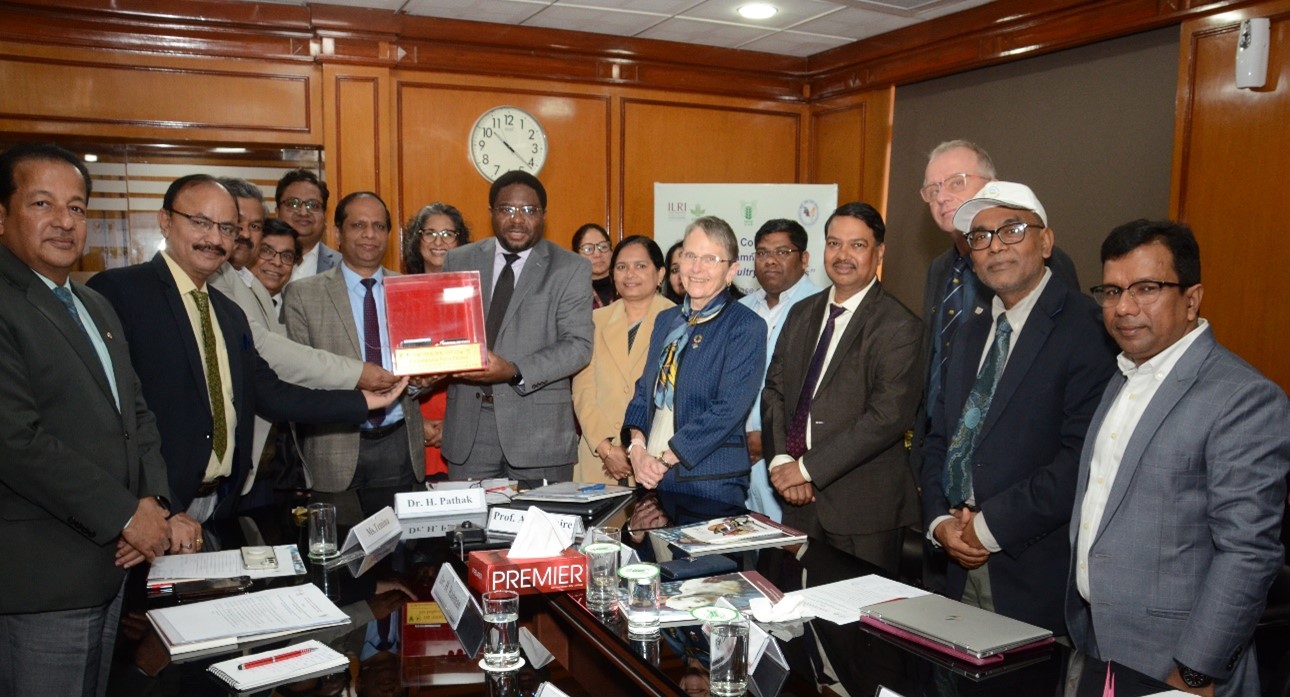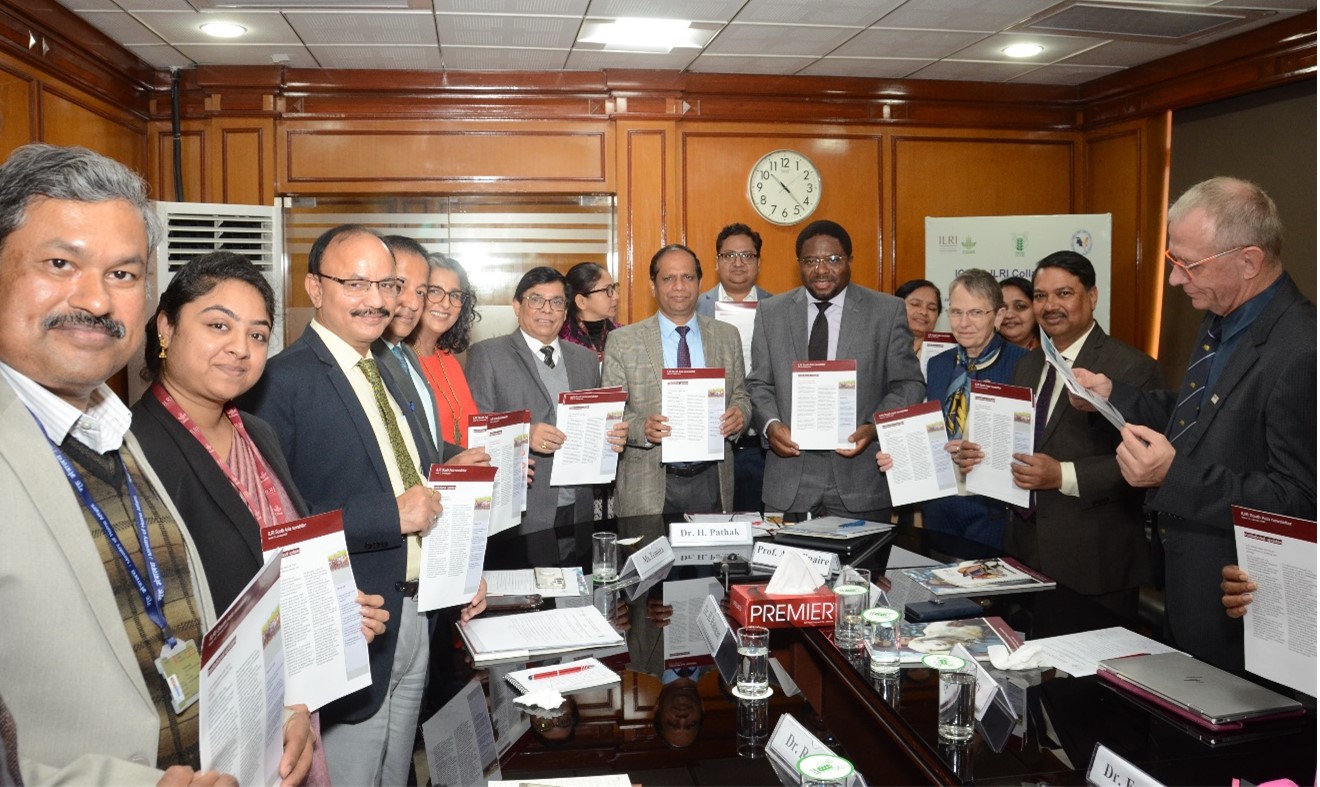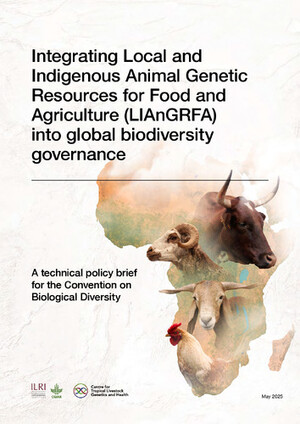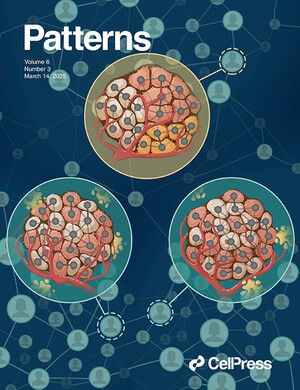
ILRI and ICAR release SNP chip to identify native chicken breeds
Indichick, a new genetic chip which can identify native chicken breeds to a specificity of around 97%, has been launched by the International Livestock Research Institute (ILRI) and Indian Council of Agricultural Research (ICAR).
In addition to identification, it can also be used for genomic selection to improve economically important performance traits in native as well as improved chicken breeds and populations.
Indichick is a medium-density single nucleotide polymorphism (SNP) chip. With SNPs being tiny genetic variations found at specific points in a genome, this chip covers the most important SNPs found in the whole genomes of native and improved exotic chicken breeds.
The chip was developed under the ICAR-ILRI backyard poultry genomics collaborative project, and released on 5 February 2024.

Photo taken during the launching of the SNP Chip (photo credit: ILRI/ South Asia)
During the launch held at ICAR Board Room, Pusa, New Delhi, Tarum Kumar Bhattacharya, director of ICAR’s National Research Centre on Equines and one of the key researchers involved in developing the SNP chip, explained the development process and uses of the unique innovation. A total of 10 indigenous native chicken breeds from various parts of India, along with two exotic chickens (one white leghorn layer and one improved broiler chicken), were included in the study to develop a more comprehensive SNP chip combining both indigenous and exotic chickens.
‘Both organized and unorganized poultry sectors may use this SNP chip for betterment of their birds, ultimately fetching more benefits and profit from poultry farming. This chip will also be useful in other countries where indigenous chicken egg and meat production is low, thus revolutionizing the poultry industry as well as backyard poultry farming not only in India but also in other countries,’ Bhattacharya said.
RN Chatterjee (director, ICAR Directorate for Poultry Research, Hyderabad) lauded the team for the timely release of the chip, which he said would boost the production of Indian poultry breeds. This is especially relevant now, when commercial poultry production is rapidly increasing across the globe, but native chicken performance is very poor.
Other speakers, including Temina Lalani Shariff (CGIAR regional director, South Asia); ILRI’s director general Appolinaire Djikeng, assistant director general Shirley Tarawali and regional representative for South Asia Habibar Rahman; and ICAR’s Himanshu Pathak (director general), Raghavendra Bhatta (deputy director general, Animal Sciences) and Joykrushna Jena (deputy director general, Fishery Sciences) all commended the work done under the ILRI–ICAR partnership.
Several projects have been undertaken based on the 2019–2022 memorandum of understanding, in four of India’s priority areas: feed and fodder development, livestock-generated methane emissions and their mitigation, backyard poultry genomics and animal disease economics. New projects have been identified for 2023–2026.
‘We should focus on strengthening and creating effective partnerships and identify areas where CGIAR can bring in expertise that is relevant to the priority areas of the country. Co-teaching and co-learning are very important, especially scientist exchange visit programs, as are scaling up of technologies and innovation,’ said Shariff.
Djikeng and Tarawali both emphasized the need to develop innovations that make the best use of the region’s unique biodiversity. They also called for more collaboration, harnessing the strengths of both institutions to come up with technologies that accelerate productivity.
‘This particular SNP chip, which is developed specifically developed for this country, should be utilized effectively to improve poultry productivity in India. Another important area to focus on is genomic selection,’ Djikeng said.
And Pathak urged the researchers to focus not only on increasing productivity but also on income generation. He also called for more ICAR–ILRI collaboration in focus areas such as climate change, animal diseases, vaccine and diagnostics.
‘Commercialization of this SNP chip is very important. The team should consider bringing commercial poultry organizations on board to scale up the use of the chip,’ said Pathak.

The 12th issue of the ILRI South Asia Newsletter was released by the dignitaries during the launching programme (photo credit: ILRI/ South Asia).

Group photo taken during the launching programme (photo credit: ILRI/ South Asia)
Further reading
https://www.ilri.org/research/projects/genome-wide-association-study-indigenous-poultry-breeds-and-varieties
(The post was edited by Terry Mwenda, communications officer, publishing and editing, ILRI, and Paul Karaimu, communications officer, ILRI)


















